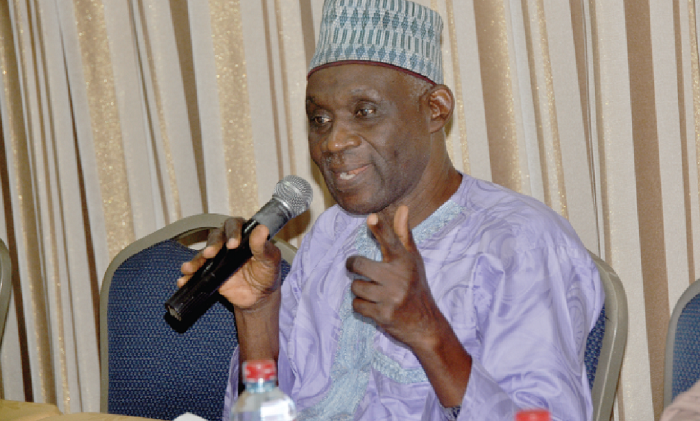
Embrace biotech to boost agric production — Prof. Alhassan
The Director of Biotechnology and Stewardship for Sustainable Agriculture in West Africa (BSSA), Professor Walter Sandow Alhassan, has called on Ghanaians to embrace the use of biotechnology in agriculture production to ensure increased crop yields to secure the country’s food basket.
Advertisement
He said many anti-Genetically Modified Food (GMO) advocates were ignorant about its benefits, adding that the need had come for the country to approve improved means of crop production to meet its rising demand and also reduce the pressure on limited arable lands.
Prof. Alhassan made the call in Kumasi yesterday during a seminar on improved seeds jointly organised by the National Seed Trade Association of Ghana (NASTAG) and the African Seed Trade Association (AFSTA).
The seminar, which was on the theme, “Celebrating 20 years of Successful Commercial Production of Biotech Crops: Opportunities for the Seed Sector”, attracted participants from Kenya, South Africa, Nigeria,The Sudan and Burkina Faso.
GMOs
Professor Alhassan said so far, over 27 countries, including South Africa, Burkina Faso and The Sudan, had tried and tested GMOs and were producing in commercial quantities.
He said as of last year, “the adoption of GM technology had reduced chemical pesticides use by 37 per cent, increased crop yields by 22 per cent and improved farmer profit by 68 per cent.”
According to the director, these seeds had been well industrialised to handle drought, salty soils, climatic change, as well as resist harmful insect attacks which he said remained a major challenge impeding conventional crop production in Africa.
He said the effects of the commercial use of GMO for the past two decades had been very positive but what was left was the need to raise the understanding of the farmers to buy into the concept.
Prof. Alhassan further noted that the introduction of biotechnology would automatically help reduce the use of agro inputs such as residuals and fertilisers which research had shown were key cancer-causing agents in humans.
NASTAG
The National Coordinator of NASTAG, Mr Thomas Havor, said the organisation was working closely with major stakeholders, including the National Biosafety Authority (NBA), to get the Biosafety Law passed to enable farmers to enjoy the full benefits of improved seeds.
He said Ghana at the moment was conducting field trials for cowpea, rice and cotton and that they were very optimistic that soon, the tried and tested seeds would be available to farmers to boost agriculture.



